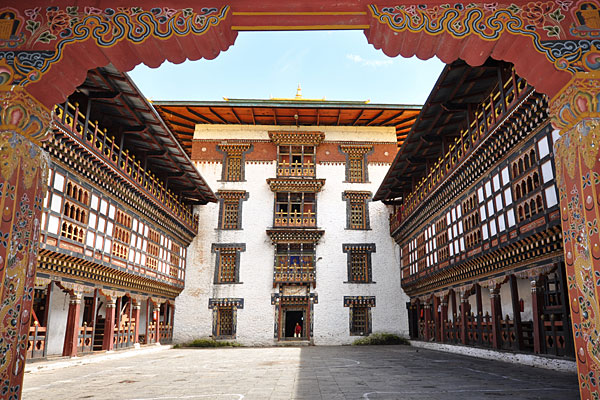 |
| Photo © Stephen J. Kelley/World Monuments |
The Trashigang Dzong fortress in Bhutan, South Asia, is one of the sites that will be protected. |
Two preservation groups have teamed up to launch a $1 million global initiative to protect historic sites damaged by natural or manmade disasters.

The World Monuments Fund, a New York-based nonprofit, and the Prince Claus Fund, an Amsterdam-based entity supported by the Dutch government, have each promised to contribute $500,000 to their new initiative, dubbed the Cultural Heritage Emergency Response program.
The program, launched last December, initially will focus on safeguarding four sites. Three of those sites have suffered earthquake damage: the 12th-century Trashigang Dzong fortress and the 16th-century Dramatse Lhakhang monasteries in Bhutan; gingerbread houses in Haiti that date to the late 1800s and early 1900s; and the 17th-century Lubuak Bareh mosque and the 1903 Gothic Revival St. Leo Monastery in the city of Padang, Indonesia. The fourth site is Pakistan’s Indus River Valley, which will be flooded once the Diamer-Basha Dam is erected. The two groups hope to document and save thousands of ancient rock carvings in the valley.
Since its establishment in 1965, WMF, which biannually publishes a list of the world’s most endangered landmarks, has safeguarded architectural works and cultural heritage sites in more than 90 countries. Emergency disaster response is done on an an-hoc basis. One of its earliest undertakings involved working in Venice after the city’s Great Flood in 1966.
“We have responded to several major emergencies because of their magnitude or because of donor interest,” says WMF President Bonnie Burnham, “but funding is generally insufficient for either a sustained effort or a meaningful short-term evaluation of damage and viable short-term mitigation.”
The new WMF and Prince Claus Fund program is an expanded version of the Dutch organization’s Cultural Emergency Response program, established in 2003.

Post a comment to this article
Report Abusive Comment